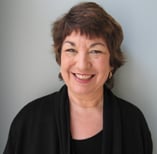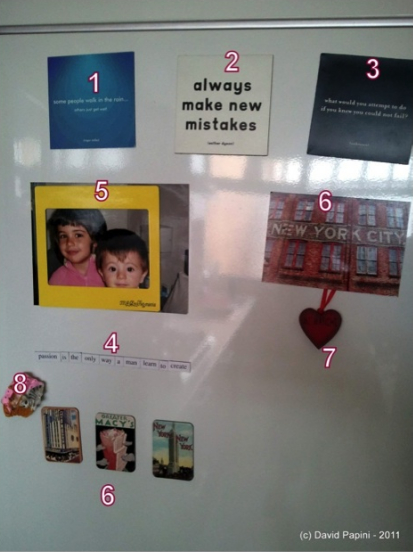 Guest post by David Papini.
Guest post by David Papini.
Last week, while I was coaching a buddy coach around the issue of “being afraid of making mistakes -> becoming anxious -> eating snacks” (loop endlessly), the association between errors and snacks (added with the fact that due to different time zones it was 8.30 pm and I was hungry) popped in my mind in the form of a clear image of my fridge, with magnets on it.
The vision narrowed to one magnet, reading as follows: “Always make new mistakes. - Ester Dyson"
I shared the image with my client and that allowed us to make a shift about the topic. We started discussing the fact that he could become very competitive in making more errors than everybody else, joking about that. And anxiety was gone.
So the magnet vision proved to be a good tool to re-frame the problem and at the same time offer a structure to help the client in dealing with performance and anxiety issues.
After the session, thankful to the magnet, I gave a closer look to my fridge door.
That magnet has been there for five years and I meet it every morning, but it was the first time it became handy in a coaching session. I started looking at it as one of my professional coaching tools and a source of daily personal awareness. This put the whole bunch of magnets in a new light; I stared at the magnets with more respect.
Below is my magnet list:
- “Some People walk in the rain, others just get wet - Roger Miller”
- “Always make new mistakes - Ester Dyson”
- “What would you attempt to do if you knew you could not fail? - anonymous”
- “Passion is the only way a man learn to create” (written with poetry magnets by myself)
- A picture of my children, Alice and Francesco
- Four magnets about New York
- A small wooden heart with written “Mi manchi” (I miss you, in Italian)
- One magnet with two white kittens
I let my magnets coach me and this is what each of them told me:
- You can choose how you feel about everything. There are no problems in nature, just events
- To create you need errors, to be happy and growing you need new ones every day. Dare!
- Free your vision, don’t limit your options (at least in thinking and feeling)
- To learn, you need emotions: connect with what you feel, the rest will follow
- Your future is here and it has your children’s eyes
- You are the places you love
- Relationship is a dance between similarity and difference, presence and absence
- Sometimes a magnet it’s just a magnet: use it to keep notes attached where you can see them
Back to the session, because the magnet citation was useful and helped us in making a shift, I told myself “that works, I could reuse this sentence [i.e. “always make new errors”] or even I can reuse the whole trick (magnet plus fridge image)”.
On a second thought I realized that “reusing it” is good for consulting or teaching, not for coaching, because what made the image powerful and effective was the fact that it popped during the coaching relationship. Effectiveness was related to that moment with that client. Moreover, as this blog post demonstrates, the image was powerful to the client and to the coach as well, so the right use for an effective image that helped in a session is honoring it, deepening the reflection on oneself as a coach; more than reusing it in another session or with another client.
In this sense and in my opinion, every coaching session is always a unique piece; it cannot be serialized. Do not bring your fridge programmatically to a coaching session: as it happens with hunger, thirst and the like, if you stay present in the session, it will show up when needed and that will be effective and artful coaching.
David was born in Florence in 1966 just a few months before the deluge, and that's a kind of destiny. As an executive is in charge for general management in a IT Firm, as a certified NLP counselor helps clients to explore their life experience, as a Coach helps clients getting what they really want , as a conflict mediator witnesses how tough and creative a relationship can be, as a trainer helps trainees in stretching their brain, growing and learning, as a public speaker enjoys co-creating experience on the fly, as a dad loves his two children. As a man he is grateful and worried that he’s got this wonderful life. And he’s fond of categorizing his professional roles :-). More about him at http://papini.typepad.com/lifehike/
David's blog is entered in Best Coaching Blogs 2011. Check it out and vote for your favorite blogs while you're there.


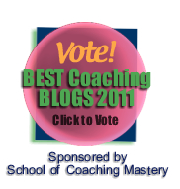
 Guest post by David Papini.
Guest post by David Papini.
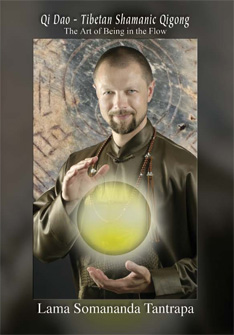 Guest Blogger, Lama Somananda Tantrapa, is the holder of the lineage of Qi Dao that has been fostered in his clan for 27 generations since 1224 AD. He has over 30 years of experience in Qi Dao and other internal martial arts. After pioneering Qi Dao Coaching in 2000, he has provided wellness, peak performance and life coaching to hundreds of clients from all walks of life. His coaching has inspired many professional athletes, speakers, dancers, singers, writers and actors to open up to the infinite source of power that exists within everyone. Lama is Founder and Editor of
Guest Blogger, Lama Somananda Tantrapa, is the holder of the lineage of Qi Dao that has been fostered in his clan for 27 generations since 1224 AD. He has over 30 years of experience in Qi Dao and other internal martial arts. After pioneering Qi Dao Coaching in 2000, he has provided wellness, peak performance and life coaching to hundreds of clients from all walks of life. His coaching has inspired many professional athletes, speakers, dancers, singers, writers and actors to open up to the infinite source of power that exists within everyone. Lama is Founder and Editor of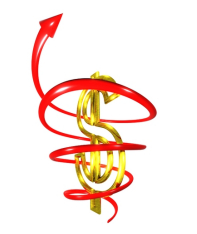 Today one of my mentor coaching clients said something brilliant.
Today one of my mentor coaching clients said something brilliant.
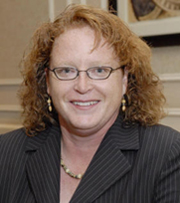 Mattison Grey is professional business and leadership coach and the founder of
Mattison Grey is professional business and leadership coach and the founder of  The Principles of Attraction, as well as the Qualities of Attraction, will help you attract more of what you want, more easily and quickly.
The Principles of Attraction, as well as the Qualities of Attraction, will help you attract more of what you want, more easily and quickly.
